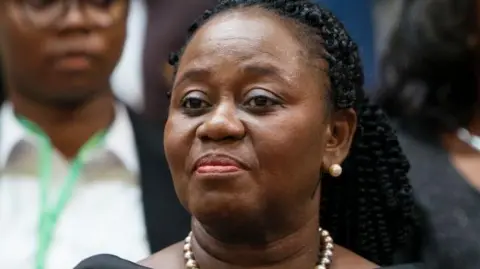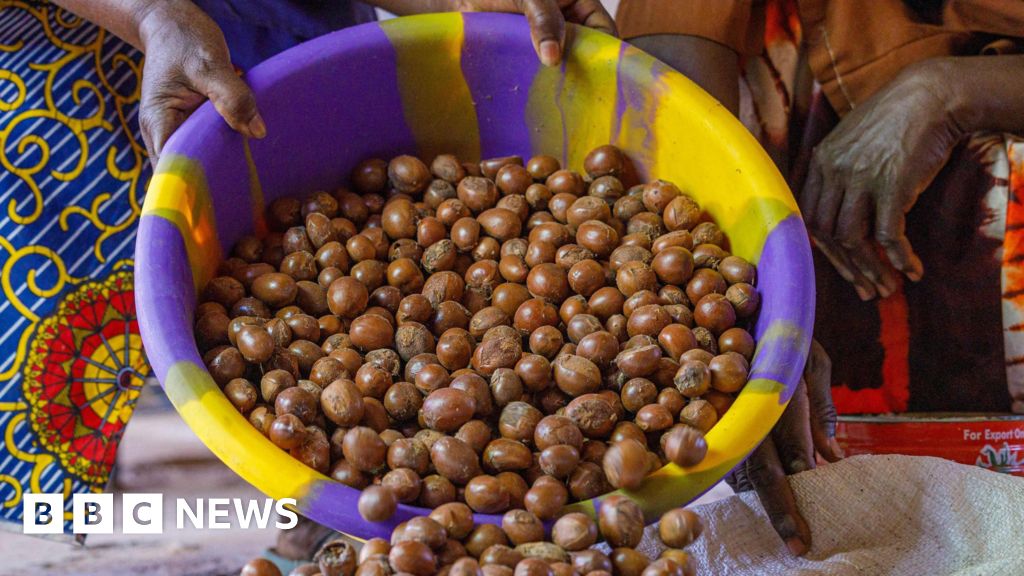In a shocking revelation, a BBC Eye investigation has exposed the illicit practices of Aveo Pharmaceuticals, an Indian company that is manufacturing unlicensed, highly addictive opioids and shipping them unlawfully to West Africa. This distribution of dangerous drugs has driven a significant public health crisis across several countries, notably Ghana, Nigeria, and Cote D'Ivoire.
The investigation found that Aveo produces a variety of pills that are designed to resemble legitimate medications but actually contain a harmful blend of tapentadol, a potent opioid, and carisoprodol, a muscle relaxant banned in Europe due to its addictive nature. This dangerous combination is not licensed for use globally and poses severe risks, including breathing difficulties and seizures, with potential for overdose fatalities. Nevertheless, these drugs have found popularity on the black market in West Africa, given their low cost and easy accessibility.
In a bid to trace the origins of these drugs, the BBC deployed an undercover operative into Aveo’s Mumbai facility. Here, the operative recorded conversations with a company executive, Vinod Sharma, who candidly acknowledged the addictive nature of the products, which are being marketed to teenagers seeking a high. Despite recognizing the health risks, Sharma inferred that their operations are merely "business."
The devastating impact of these opioids is visible in cities like Tamale in Ghana, where community leaders have formed task forces to combat the rampant drug problem. One local chief, Alhassan Maham, described the toll these drugs take on youth, equating addiction to a wildfire. An alarming raid conducted by the task force uncovered Aveo-branded pills on the streets, revealing the scale of the issue.
In Nigeria, where opioids are ensnaring millions, authorities are struggling to tackle a growing epidemic. Despite past efforts to regulate the sale of tramadol, a commonly abused opioid, illicit trade continues to thrive with companies like Aveo innovating harmful concoctions to dodge restrictions. This has led to warnings from West African officials regarding the ongoing exploitation of regulatory loopholes.
The BBC’s investigation shows that millions of these danger-laden pills, including different branded versions like Tafrodol, are being exported to Ghana and other nations in West Africa. Local health experts underscore the life-threatening nature of the tapentadol-carisoprodol mix, describing its effect on respiratory health and overall well-being.
This alarming scenario raises questions regarding India's pharmaceutical regulatory system. The Central Drugs Standard Control Organization (CDSCO) stated its commitment to upholding public health standards in international practices. However, their assurances clash with the documented evidence of unlicensed exports from companies such as Aveo, highlighted by recent investigations.
As local task forces confront the crisis, they emphasize the importance of demonstrating visible action against drug dealers, illustrated by their public drug burnings. Yet, despite these efforts, the heart of the problem remains unaddressed, with Aveo Pharmaceuticals continuing to profit amid the ongoing destruction of lives due to opioid addiction. The investigative report thus calls for heightened international scrutiny and collaborative action to halt the flow of these destructive substances from their origins in India to vulnerable populations in West Africa.
The investigation found that Aveo produces a variety of pills that are designed to resemble legitimate medications but actually contain a harmful blend of tapentadol, a potent opioid, and carisoprodol, a muscle relaxant banned in Europe due to its addictive nature. This dangerous combination is not licensed for use globally and poses severe risks, including breathing difficulties and seizures, with potential for overdose fatalities. Nevertheless, these drugs have found popularity on the black market in West Africa, given their low cost and easy accessibility.
In a bid to trace the origins of these drugs, the BBC deployed an undercover operative into Aveo’s Mumbai facility. Here, the operative recorded conversations with a company executive, Vinod Sharma, who candidly acknowledged the addictive nature of the products, which are being marketed to teenagers seeking a high. Despite recognizing the health risks, Sharma inferred that their operations are merely "business."
The devastating impact of these opioids is visible in cities like Tamale in Ghana, where community leaders have formed task forces to combat the rampant drug problem. One local chief, Alhassan Maham, described the toll these drugs take on youth, equating addiction to a wildfire. An alarming raid conducted by the task force uncovered Aveo-branded pills on the streets, revealing the scale of the issue.
In Nigeria, where opioids are ensnaring millions, authorities are struggling to tackle a growing epidemic. Despite past efforts to regulate the sale of tramadol, a commonly abused opioid, illicit trade continues to thrive with companies like Aveo innovating harmful concoctions to dodge restrictions. This has led to warnings from West African officials regarding the ongoing exploitation of regulatory loopholes.
The BBC’s investigation shows that millions of these danger-laden pills, including different branded versions like Tafrodol, are being exported to Ghana and other nations in West Africa. Local health experts underscore the life-threatening nature of the tapentadol-carisoprodol mix, describing its effect on respiratory health and overall well-being.
This alarming scenario raises questions regarding India's pharmaceutical regulatory system. The Central Drugs Standard Control Organization (CDSCO) stated its commitment to upholding public health standards in international practices. However, their assurances clash with the documented evidence of unlicensed exports from companies such as Aveo, highlighted by recent investigations.
As local task forces confront the crisis, they emphasize the importance of demonstrating visible action against drug dealers, illustrated by their public drug burnings. Yet, despite these efforts, the heart of the problem remains unaddressed, with Aveo Pharmaceuticals continuing to profit amid the ongoing destruction of lives due to opioid addiction. The investigative report thus calls for heightened international scrutiny and collaborative action to halt the flow of these destructive substances from their origins in India to vulnerable populations in West Africa.






















